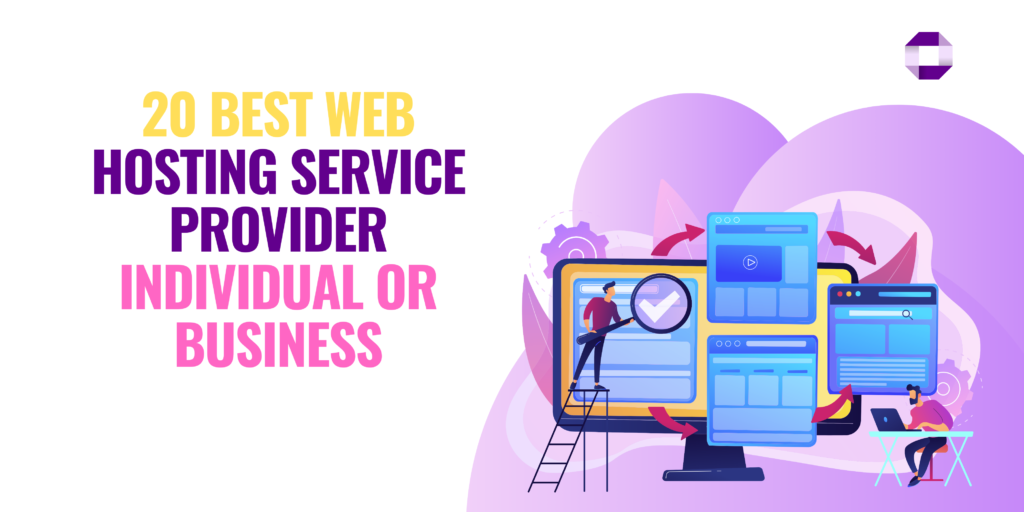In today’s digital age, choosing the right e-commerce platform can make or break your online business. With various options available, it’s essential to understand the features, pros, cons, and pricing of each platform to find the most suitable one for your needs. This blog post covers the 15 best e-commerce platform providers to help you make an informed decision.
1. Shopify
Overview: Shopify is one of the most popular e-commerce platforms, catering to small and large businesses alike.
Pros:
- Easy to use with a user-friendly interface
- Extensive app store for added functionalities
- Excellent customer support available 24/7
Cons:
- Transaction fees unless you use Shopify Payments
- Limited customization without coding knowledge
Pricing: Plans start at $39/month.
Link: Explore Shopify Here
2. WooCommerce
Overview: An open-source plugin for WordPress, WooCommerce turns a WordPress site into a fully-functional e-commerce store.
Pros:
- Highly customizable and flexible
- No ongoing fees for the platform itself
- Large community and support resources
Cons:
- Requires WordPress hosting, which can add complexity
- Potential for additional costs with plugins
Pricing: Free core plugin; costs depend on hosting and additional plugins.
Link: Get Started with WooCommerce
3. BigCommerce
Overview: BigCommerce is designed for fast-growing and established businesses, offering robust features and support.
Pros:
- No transaction fees
- Built-in features like SEO tools and multi-channel selling
- Scalable for larger businesses
Cons:
- Steeper learning curve compared to Shopify
- Design options may be limited
Pricing: Plans start at $39/month.
Link: Discover BigCommerce
4. Wix eCommerce
Overview: Wix is a website builder that also offers powerful e-commerce features, making it easy to create visually appealing online stores.
Pros:
- Drag-and-drop site builder for easy design
- Great selection of modern templates
- No technical skills required
Cons:
- Limited scalability for larger businesses
- Some features are only available on higher-tier plans
Pricing: Plans start at $23/month.
Link: Build Your Store with Wix
5. Squarespace
Overview: Squarespace is known for its stunning design templates and is perfect for artists and creative entrepreneurs.
Pros:
- Beautiful design templates
- All-in-one platform with hosting included
- SEO tools integrated
Cons:
- Limited payment gateways
- Less e-commerce-oriented features compared to Shopify
Pricing: Plans start at $26/month.
Link: Start with Squarespace
6. Magento
Overview: Magento is an open-source platform acquired by Adobe, known for its robustness and scalability.
Pros:
- Highly customizable with extensive features
- Ideal for large enterprises with complex needs
- Strong community support
Cons:
- Requires technical expertise for setup and management
- Costs can escalate with hosting and development
Pricing: Free for Community Edition; Enterprise pricing varies.
Link: Explore Magento
7. PrestaShop
Overview: PrestaShop is an open-source e-commerce solution that provides powerful tools for online stores.
Pros:
- Large selection of themes and modules
- No licensing fees; a strong community
- Highly customizable
Cons:
- Hosting and development must be arranged separately
- Requires technical knowledge for optimal use
Pricing: Free; however, hosting and add-ons may incur costs.
Link: Learn More About PrestaShop
8. Squarespace
Overview: Squarespace is known for its stunning design templates and is perfect for artists and creative entrepreneurs.
Pros:
- Beautiful design templates
- All-in-one platform with hosting included
- SEO tools integrated
Cons:
- Limited payment gateways
- Less e-commerce-oriented features compared to Shopify
Pricing: Plans start at $26/month.
Link: Start with Squarespace
9. Volusion
Overview: Volusion offers a straightforward e-commerce solution with various features for building an online store.
Pros:
- User-friendly interface
- Built-in SEO features
- 24/7 customer support
Cons:
- Limited design templates
- Higher transaction fees on lower-tier plans
Pricing: Plans start at $39/month.
Link: Check Out Volusion
10. Zen Cart
Overview: Zen Cart is a free, open-source shopping cart software that allows customization and control over the user experience.
Pros:
- Completely free to use
- Active community and support
- Highly customizable
Cons:
- Requires technical knowledge
- User interface may look outdated
Pricing: Free; hosting required.
Link: Discover Zen Cart
11. 3dcart
Overview: Now known as Shift4Shop, this platform offers powerful e-commerce capabilities with extensive out-of-the-box features.
Pros:
- No transaction fees
- Built-in SEO tools
- Free mobile-responsive templates
Cons:
- Limited third-party integrations
- Could be overwhelming for beginners
Pricing: Free version available with conditions; other plans start at $29/month.
Link: Get Started with Shift4Shop
12. Ecwid
Overview: Ecwid allows you to sell on various platforms, including social media, websites, and marketplaces.
Pros:
- Easy setup and integration with existing sites
- Multi-channel selling capabilities
- Responsive customer support
Cons:
- Limited design customization on lower-tier plans
- The free plan is somewhat restrictive
Pricing: Free for up to 10 products; paid plans start at $15/month.
Link: Try Ecwid Here
13. GoDaddy Online Store
Overview: GoDaddy’s e-commerce solution is reliable and user-friendly, ideal for small businesses.
Pros:
- Simple setup process
- 24/7 customer support
- Integrated marketing tools
Cons:
- Limited design flexibility
- Higher transaction fees
Pricing: Plans start at $24.99/month.
Link: Build Your Store with GoDaddy
14. Shopify Plus
Overview: Shopify Plus is designed for enterprise-level businesses that have outgrown standard Shopify plans.
Pros:
- Customizable checkout and advanced features
- Scalable solutions tailored for high-volume businesses
- 24/7 dedicated support
Cons:
- Higher cost
- More complex than standard Shopify plans
Pricing: Starting price around $2,000/month.
Link: Explore Shopify Plus
15. Square Online
Overview: Square Online, powered by Square, is ideal for businesses looking for an all-in-one solution, especially for restaurants and local shops.
Pros:
- Easy integration with Square’s payment processing
- Free plan available
- User-friendly interface
Cons:
- Limited features on the free plan
- Less customizable compared to other platforms
Pricing: Free to start; paid plans begin at $12/month.
Link: Start Your Square Online Store
Conclusion
Choosing the right e-commerce platform for your online store boils down to your specific business needs, technical skills, and budget. Whether you are a small business owner just starting or an established enterprise seeking advanced features, the above-listed platforms cover a wide spectrum of requirements.
Make sure to evaluate each option thoroughly and consider taking advantage of free trials wherever possible. By investing the time to research, you’re setting your online store up for success!


